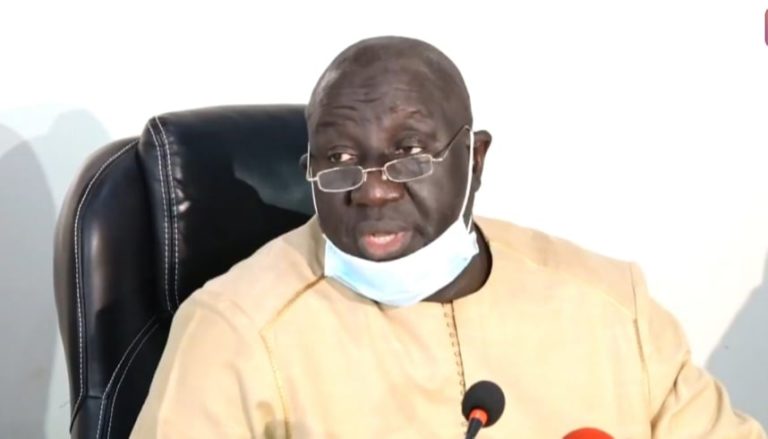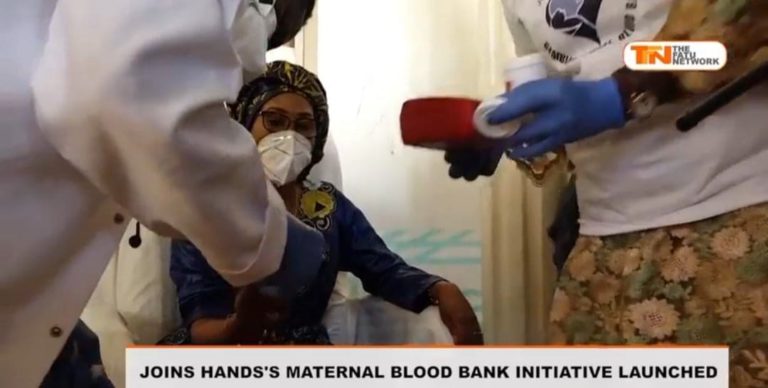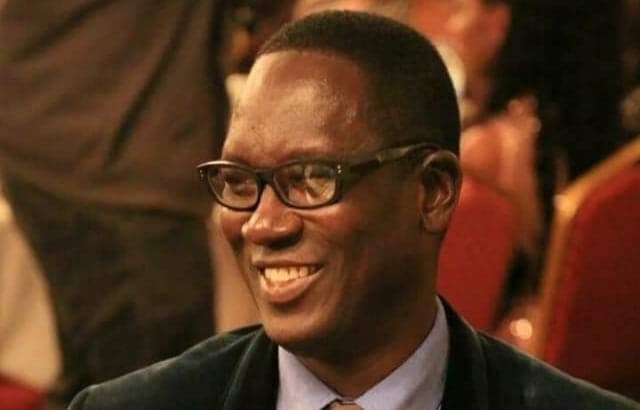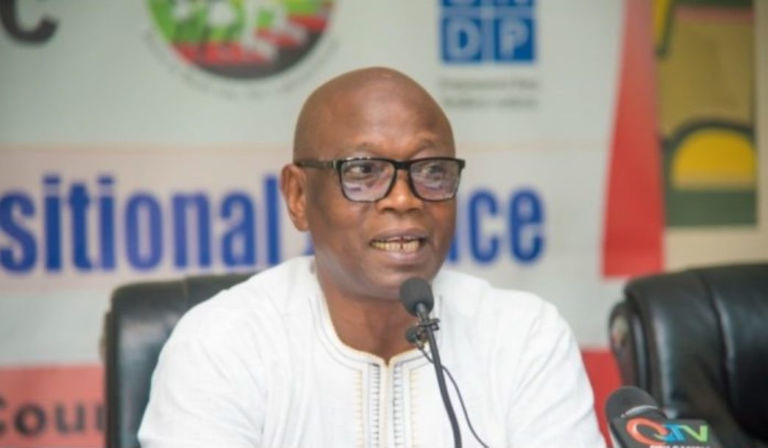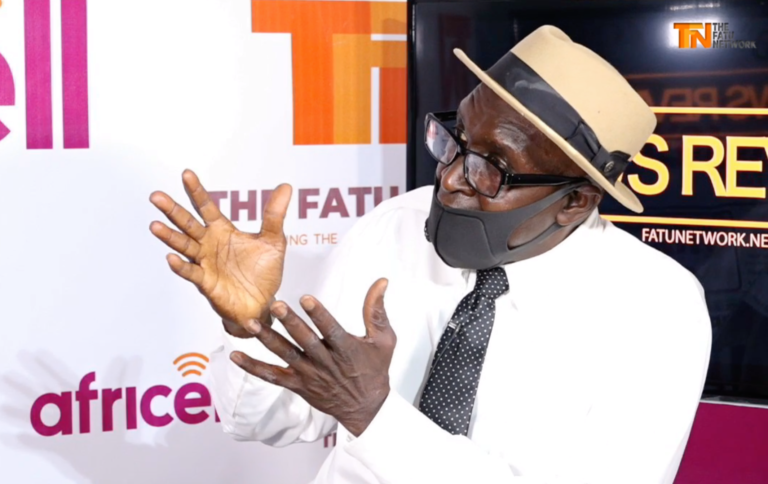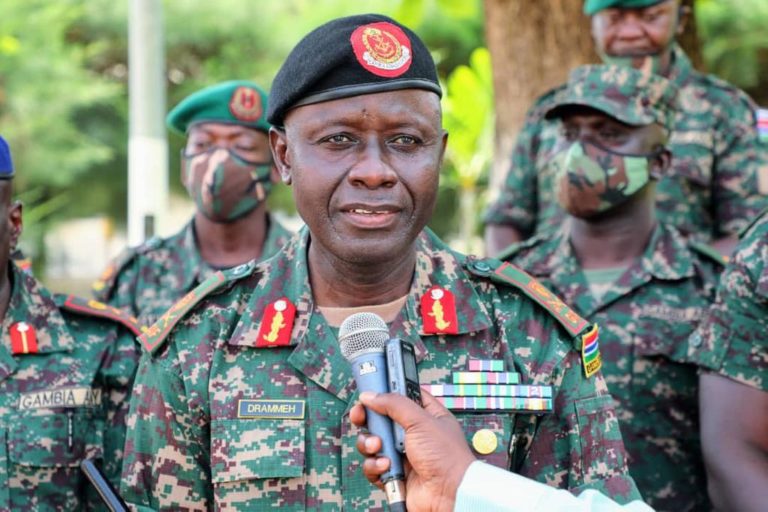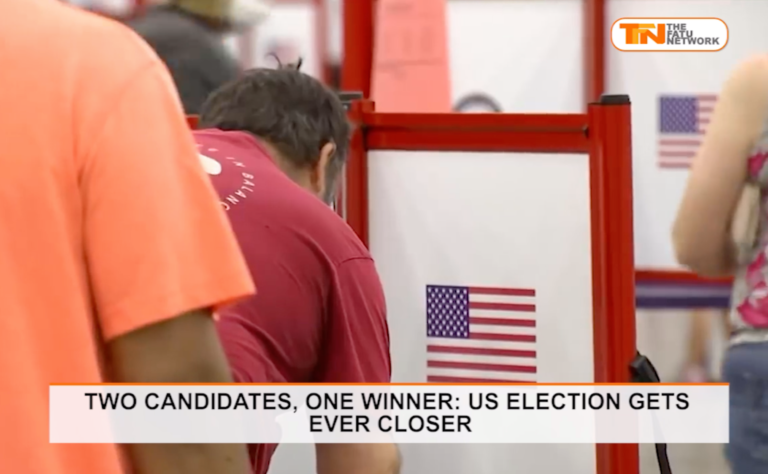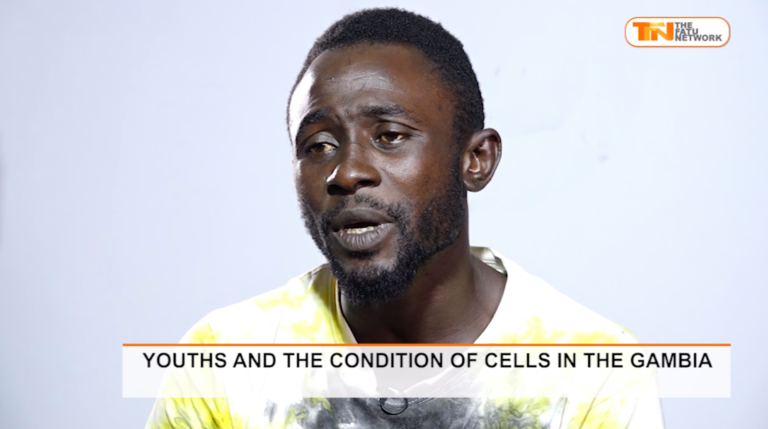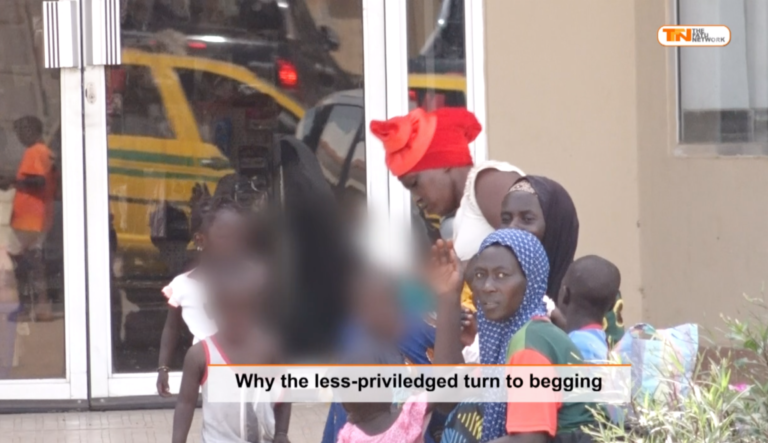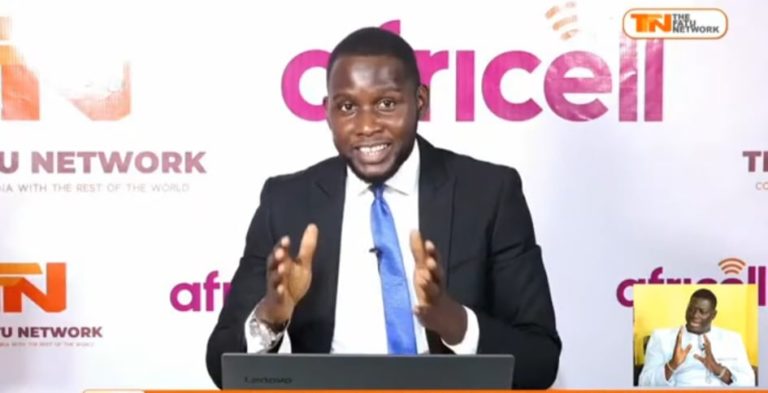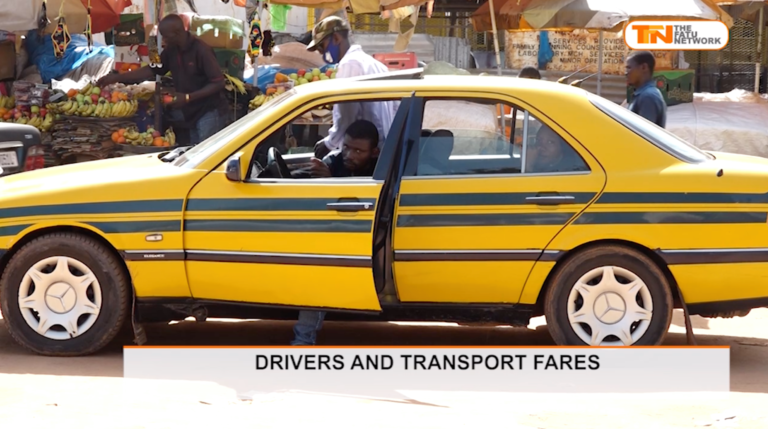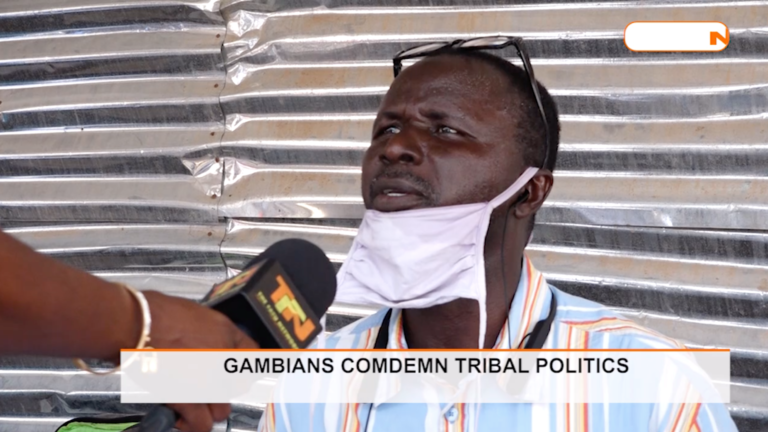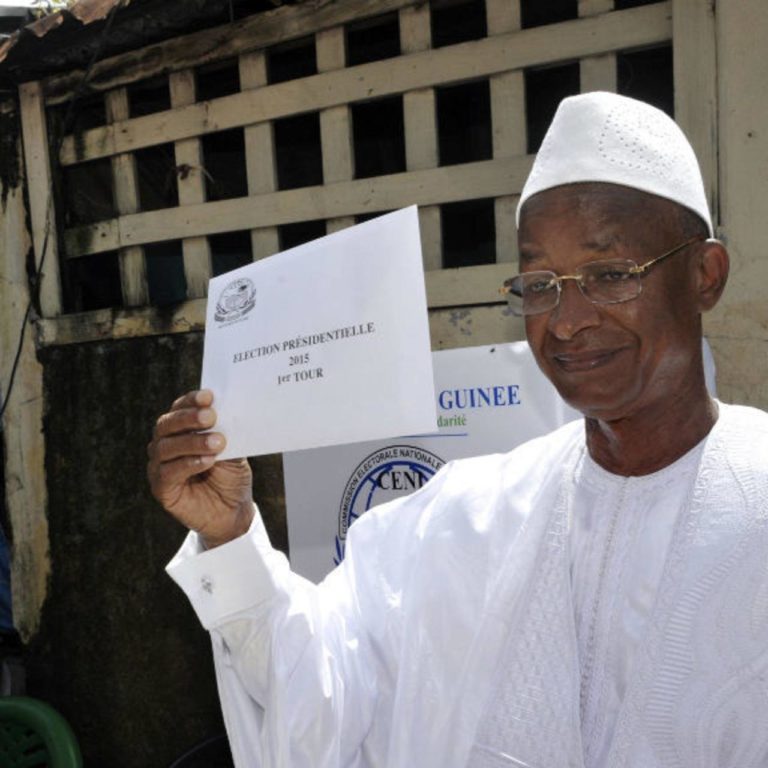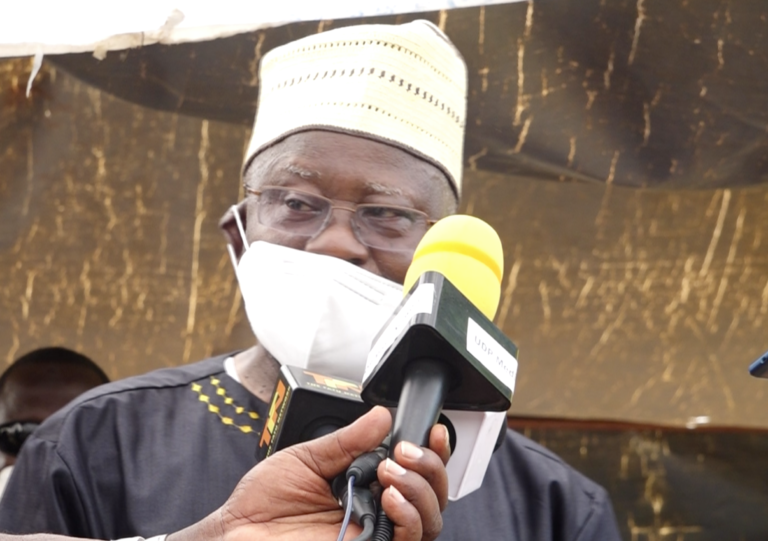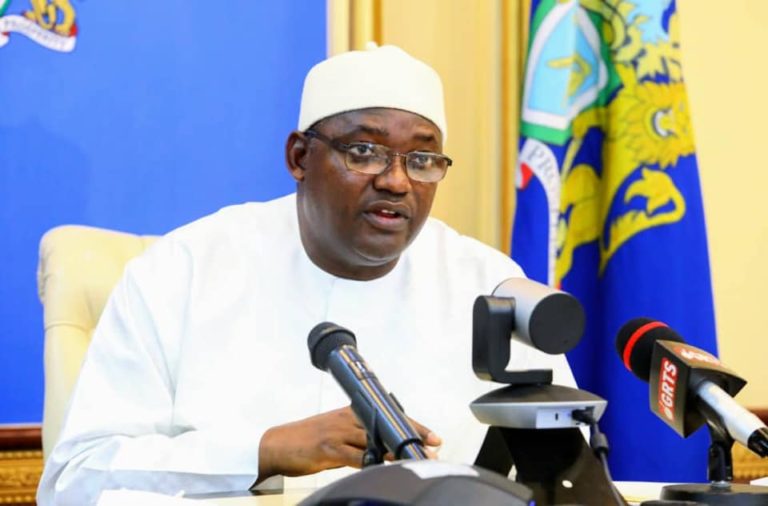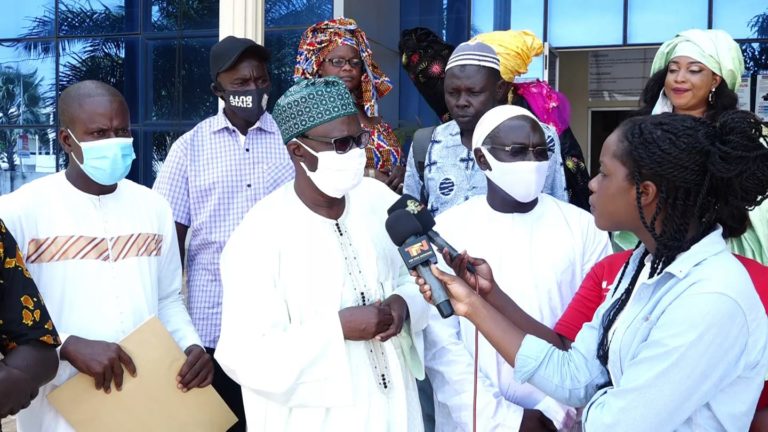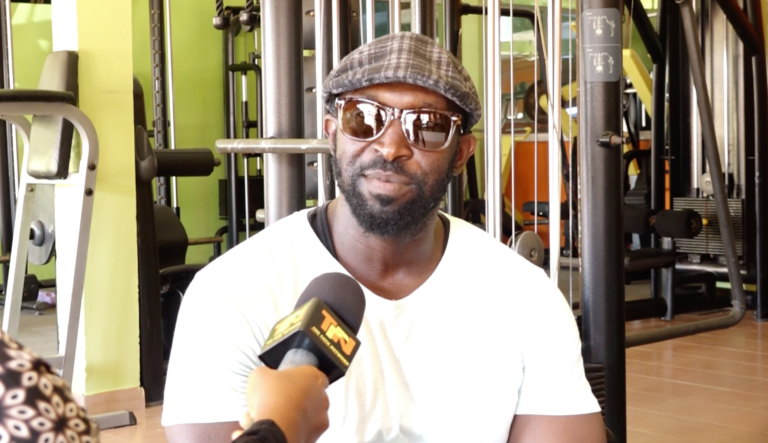Photojournalist Ebou Waggeh, known for his brilliant shots of places, dies at 63
Photojournalist Ebou Waggeh has suddenly died on Monday, his family has confirmed. Mr Waggeh was aged 63.
The Wax Media founder is known for taking brilliant shots of streets and places; he did a wonderful job taking shots of almost all the streets in Banjul and posting them online.
In September, the journalist displayed his brilliance by capturing President Barrow as he waved at a small crowd on Bertil Harding Highway from the window of a moving car.
Mr Waggeh had previously worked at GRTS.
BABA GALLEH JALLOW – STORY: The adventures of Alkatan – 9
By Baba Galleh Jallow
As Nyinya walked home she kept laughing nervously to herself. She still felt some fear, but she was reassured by Alkatan’s words. She now had some hope that she would not, after all, be forced to marry Imam Sukuro. She giggled anytime she thought about the fact that Imam Sukuro couldn’t recognize her. At first she thought he was just pretending but now knew that the imam really thought she was an old lady he had never seen before! This strange fact made her hopeful and trust in Alkatan’s words. He had said the imam will not touch me, she thought as she entered their compound and went straight to her mother’s hut.
Natoma lay on her bed, feeling sad as she has been since her husband decided Nyinya must marry Imam Sukuro. She loved her daughter to death and her heart bled that her small baby will be forced to marry a man old enough to be her grandfather; that she will become the fifth wife of an old man and not the first wife of a young and vibrant man as she had always prayed. She was troubled that her prayers were not answered and that her baby’s life will be destroyed through a forced marriage. For how could a woman be happy if she does not lover her husband, of if she is forced to marry a man old enough to be her grandfather? When sometimes the tears flowed down her face onto the pillow, she turned to face the wall and pretended to be asleep when someone came in. Nyinya entered and called her.
“Nna.”
Natoma turned, saw her daughter’s face and immediately sat up, adjusting her head tie and wondering what happened. The last time she saw Nyinya, the girl’s face was a thick wall of pain and her eyes were red and swollen from crying. Now Nyinya’s face glowed, her eyes sparkled and the girl was laughing. Natoma was scared.
“Eh Nyinya. You are happy,” she observed, at once puzzled and frightened at the look on her daughter’s face. “What happened?” she asked.
“Nna, I don’t think I will marry Imam Sukuro again,” Nyinya giggled as she sat next to her mother on the bed. A hesitant smile broke on Natoma’s lips.
“Eh, what happened? Did your father change his mind?” she asked. “Or did the imam say he no longer wants to marry you?”
“No, Nna,” Nyinya replied. “Alkatan said so. I went to him and told him and he took me to Imam Sukuro and asked him not to marry me. Sukuro did not agree but Alkatan said I should not worry, that Sukuro will never touch me!”
“Ah, I hear people say that Alkatan is not an ordinary person. But what will your father say? Only if Sukuro dies before tomorrow can I believe that he will not marry you Nyinya. These men? What they say is what they do.”
“But I believe in Alkatan Nna,” Nyinya said. “When we went to his compound Imam Sukuro did not recognize me. He kept calling me an old woman. He did not recognize me Nna!”
“He did not recognize you? He said you were an old woman? Is he gone mad?” Natoma could not understand what her daughter was saying as Nyinya explained how Imam Sukuro insisted that she was an old woman and not the girl he was about to marry. She told her mother Alkatan said that she should not worry, that she should agree to everything she was asked to do, and that Imam Sukuro will never touch her.
“Hmmn. That is strange,” Natoma said. “But people say Alkatan’s head is wide. If he could throw Degere in a wrestling match and convince Kiyanka to kill thirty cows and give them out as charity and never to take people’s goats again, then maybe he can help us make sure Imam Sukuro does not marry you.”
“He won’t Nna!” Nyinya said, giggling. “I believe what Alkatan said.”
After lunch, Afang Wolemu and other elders sat on mats under the big tree in the middle of his compound, chatting and waiting for Imam Sukuro’s delegation to arrive from the Borati clan. This was not the first time the Borati and Wolemu clans had intermarried. Afang Wolemu was particularly pleased that his daughter was getting married to Imam Sukuro.
“As for us, we should just thank God. Imam Sukuro is a man of blessings and will take good care of our daughter,” Afang Wolemu kept repeating, stopping short of mentioning how happy he was that the imam was well-off and would definitely help him once in a while. “Eh, what is important is that when a woman reaches the age of marriage, she should be married.”
“Ah, that is the truth,” some elders chorused. Someone observed that any woman who was married to Imam Sukuro was assured of heaven because the imam was a man of God and he had no chaakaan. “Imam Sukuro is a man of truth and seriousness,” another elder observed.
As they spoke they saw Imam Sukuro’s delegation enter the compound, with Imam Diyamu holding the bundle of colanuts to be offered, accepted and shared to formalize the marriage. Afang Wolemu and his relatives were a little surprised to see Imam Sukuro among the arrivals. It was unusual that the man who is begging for a wife is among those who came to beg and so the Wolemu elders could not help noticing Imam Sukuro’s strange presence among the Borati delegation. Greetings were exchanged and the delegation invited to sit down on the mats. As soon as Afang Wolemu finished repeating that the Borati elders were welcome, Imam Sukuro said he knew that he was not supposed to be there but he came with the delegation because he wanted to say something to Afang Wolemu before the marriage was tied.
“Yesterday that old man Alkatan came with an old woman to my compound to beg me not to marry your daughter,” Imam Sukuro continued. “They said you did not send them. Were you aware of this Afang Wolemu?”
“No I was not aware of that,” Afang Wolemu responded, looking surprised and a little confused. “Did you say they came to beg you not to marry my daughter?”
“Yes,” the imam said. “But what worries me is that Alkatan said the old woman was your daughter Nyinya. Eh, I don’t want to enter into darkness Afang. That’s why I came here now.”
“Eh, I don’t even know what you are talking about imam because I Wolemu did not send anyone to ask you not to marry my daughter,” Afang Wolemu replied, feeling perplexed. “And I know that my daughter will not dare to do that because both she and her mother will get out of my compound if she did. As for Alkatan, I did not send him to you.”
“Well our elders say you should not buy something you have not seen,” Imam Sukuro said. “You should only buy something when you lay eyes on it and you are satisfied that it is the thing you are buying and not something else. It is for that reason that I came. I want to see the girl for whom all of you elders are here today. I want to make sure that you are giving me your daughter and not an old woman whose origin I don’t know.”
Afang Wolemu and the elders were surprised by Imam Sukuro’s request but they agreed with him that no one should buy what they have not seen. And so Afang Wolemu called out Nyinya’s name and when she answered, asked her to come over. Nyinya came out of her mother’s hut and walked towards the elders. Nyinya arrived and bent her knees in greeting to the elders, and said, “I am here father.” Natoma stood at her door watching.
“Eh Imam, here is the one you want to see, my daughter Nyinya,” Afang Wolemu said, gesturing towards the girl.
“Where is she?” the imam asked. “I mean your daughter Nyinya, for whom I bring colanuts today.”
“Eh, Imam, here is my daughter Nyinya, standing right before you. She’s the only daughter I have and she’s the one you want to marry,” Afang Wolemu said, beginning to get irritated. “You said you wanted to see her; here she is.”
At that point Imam Sukuro lost his temper. He angrily sprang to his feet and shook his fist at Afang Wolemu. Some of the elders grabbed his legs while others stood up, ready to restrain him.
“So you Afang Wolemu think I am a mad man!” the imam angrily said. “So you were the one who sent Alkatan yesterday to ask me not to marry your daughter! If you don’t want to give me your daughter why didn’t you just tell me, ha? Was this not the same old woman who came with Alkatan to my compound yesterday?” he queried, pointing at Nyinya and glaring down at Afang Wolemu. A chorus of voices from the elders pleaded with the imam to take it easy and assured him that the woman standing there was indeed Nyinya. Afang Wolemu and the elders were bewildered and wondered whether the imam had gone mad.
“In fact, this talk is too much!” Imam Sukuro snapped angrily. “You take your daughter and give me back my cow and my colanuts!” With that Imam Sukuro bent down and grabbed the bundle of colanuts and instructed his disciples to go untie the cow tied to a stake nearby. He slipped his feet into his shoes and angrily marched out of Afang Wolemu’s compound. Not knowing what was really happening, the elders loudly wondered among themselves and gradually dispersed. “No one must ever come here to beg for my daughter’s hand in marriage to Sukuro! I will fight whoever dares to come here on behalf of Sukuro again!” Afang Wolemu angrily warned as the elders dispersed.
The next day Nyinya went to visit her best friend Sima at Imam Sukuro’s compound and the imam recognized her. He sat up in his pilyaan as the girl passed and said “Eh, is this not Nyinya? Where were you?”
“Salaam Imam, I’ve been here,” Nyinya responded and walked on.
“You’ve been here?” Imam Sukuro queried, putting his prayer beads into his pocket. He would wait until Nyinya was coming back that way.
SAM SARR – COMMENT: Why I voted for the Biden-Harris ticket
I have in the past four years been wrestling with my thoughts over who would be the most viable Democratic presidential candidate in 2020 to challenge President Donald Trump and win my vote. I had since made up my mind not to cast my vote for any candidate who doesn’t present major-policy-changing ideas and also not ones grounded on merely getting rid of “undesirable Trump” for all his downcast attributes in the past four years. In fact, if it hadn’t been the negative effect of the global pandemic on the American economy, I think Biden would have faced an uphill battle of beating Trump on the health of our economy that he had impressively built.
And to be quite honest when President Trump intimated his intention to go after China for recklessly spreading the plague around the world, I almost thought of rooting in for him because of my invariable conviction that, no matter what, President Xi Jinping’s government or the communist ruling party of China must be held accountable for the destructive effects of COVID-19 on every economy in the world. But that all changed when recent intelligence reports, reiterated by Joe Biden in their debate last night, revealed Trump’s hidden private bank accounts in China where he had been borrowing money for his personal business. As typical of him, he tried to debunk it with not what many Americans were dismissing as baseless allegations but with “I have closed those accounts in China since 2015”. Who would believe that or ever trust his effectiveness in going after China after such revelations and his refusal to still release his taxes?
So as President Barack Obama put it two days ago at a political rally in Pennsylvania in support of his former vice president’s candidature that Trump was in the White House more for his personal gains than that of the Americans in general.
Nevertheless, when Joe Biden finally emerged as the Democratic presidential frontrunner, I thought he was going to run primarily on “Obamaism” until I heard an important statement made by his running mate Kamala Harris during her debate with Vice President Mike Pence on October 7, 2020. That a Biden government would not only decriminalize the possession and use of marijuana at federal level but will go further to expunge the criminal record of the millions of ex-convicts on the substance, mainly black people and minorities, from the national database.
That essentially won my vote for a government which I think will provide us with the most progressive post-coronavirus-pandemic administration Americans will forever extol.
Already 16 states in the USA have decriminalized the recreational use of the “drug” while others are commercially cultivating and harvesting it, with all indications denoting its ultimate national legalization soon.
Then just like in the case of alcoholics most lawmakers now agree that the unfortunate and inevitable abusers and addicts are better of being treated in substance-abuse centers and helped to readjust back to normalcy rather than being subjected to such cruel punishments.
But without a doubt, I think it is well overdue for this long-awaited holistic expunge of the criminal records of these poor folks, locked up in the past and present for possessing or smoking marijuana, a policy that has apparently destroyed the lives of millions of ambitious and brilliant young men and women often condemned to the life of surviving through crime and other unorthodox means.
In 2016, in my neighborhood of Newark, New Jersey, I ran into a 29 year old African American lady selling odd items like winter gloves, scarfs, hats, wallets, belts, incense and other similar things crammed on a small rectangular table.
I cannot remember what I bought from her but I certainly purchased few items out of sympathy after briefly hearing the story of her first major setback in life that drove her into the job of a petty street vendor.
Tameka is the name still echoing in my mind as the one she gave me. She had completed high school at the age of 17 with outstanding performance and had throughout wanted to join the US Air-force. In her entry exams she had scores above the average and was scheduled to report for training when few days before, a white cop arrested her smoking a “joint” with friends at the Branch-Brooks Park on Clifton Avenue.
She was tried and convicted to a jail term of six months and since then all efforts to rehabilitate her life for something better had failed. She told me how most of her friends and family members in the neighborhood caught in the same quandary had to resort to crime for survival and had turned some into repeated offenders constantly going in and out of jail. She never wanted to go back to jail which drove her into becoming a street “hustler”.
These stories of arrests and incarcerations of mostly minorities have not decrease the number of users and abusers of the substance as expected especially after enduring harsh punishments but instead continue to increase and create more criminals everywhere.
In 2018 alone, over 660,000 Americans in possession of or caught using marijuana were convicted by the bias justice system adding to the over-bloated criminal database unnecessarily turning young boys and girls into irreversible delinquents. The Joe Biden-Kamala Harris presidency promised to overhaul the decadent justice system that would, among this one, treat all Americans equally and give a second chance to most hopeless people.
Just for you to know, all three former US presidents before Donald Trump, i.e. Bill Clinton, George Bush and Barack Obama had confessed to have at some point in their youthful or adolescent lives experimented the “drug”. I don’t know about Clinton and Bush who as whites would have most likely enjoyed preferential treatment had they been caught by cops, but in the case of Obama, an African American, his arrest with the substance would have terminated all his hopes and chances of ever becoming a US senator, let alone a president. He would have been among the millions of criminals in the system’s database, permanently destroying his life and perhaps never noticed in history.
Expunging these records will be the greatest thing an American president would be remembered for in modern history. It will be like a gift from the gods in a post-coronavirus pandemic.
For that reason I voted for the Biden-Harris ticket and will urge all my fellow Americans to join me in doing so.
Thanks for reading.
SAMSUDEEN SARR
BANJUL, THE GAMBIA
Breaking: President Barrow promotes nation’s military leaders
President Adama Barrow has promoted the nation’s top military leaders, the defence ministry has said.
In a statement, the defence ministry said the president has promoted the nation’s army chief of defence staff Major General Yakuba Drammeh to the rank of Lieutenant General.
His deputy Mamat O Cham has been promoted to the rank of Major General while the army commander Colonel Ousman Gomez and commander of Republican National Guard Colonel Turo Jawneh have been promoted to the rank of Brigadiers General respectively.
When will Pres. Adama Barrow address the Tribal Politics of Hamat Bah?
By Madi Jobarteh
There is no doubt that no Gambian should be subjected to discrimination and ethnic profiling by State agents. Indeed, I’ve received some complaints from many people of different ethnicities that they have been treated as non-Gambians by immigration officers on account of their names, complexion, physique and other looks. Members of the Fulani community may have been one of the most affected, if not the most. This is condemnable and the Government has a duty to ensure that its agents do not discriminate against any citizen.
Given the above, one would have thought that this matter should have been raised by any Minister in Cabinet to be discussed so that necessary institutional or administrative measures are taken to handle it. Hamat Bah is already a key Minister in that Cabinet and a party leader as well and he has all the right and duty to raise the matter there. After all, this malpractice is committed by public officers of a Government in which Hamat Bah is a leading member. Why then complain when he should have fixed it, officially.
Therefore, it begs the question as to why Hamat would decide to use a political rally to raise this issue and then connect it to voting by calling on Fula voters to be careful of ‘rats’ who are lurking around. Who are these ‘rats’? Clearly, Hamat’s intention is not about the discrimination of the Fula, rather Hamat is now doing political campaigning for votes. He only used this story to generate fear and victimhood in the Fula hence trigger tribal sentiments in them so as to push them toward a certain political platform. This is what is called tribal politics and it is dangerous.
Given our background where we had a Despot who employed tribal politics in the most vicious manner that continues to threaten the cohesion and stability of this country until today, the comments by Hamat Bah are indeed concerning and should therefore be condemned in the strongest terms. None more than the President should be the one to do so first! Yet it is now 72 hours since Hamat made such a bigoted and insulting comment without the President standing against it. This is indeed a demonstration of poor leadership that must be equally condemned.
While the Constitution of the Gambia guarantees freedom of expression and the right to political participation, however political participation in a democracy is also built on values and standards that must be upheld by all politicians and their supporters. The Constitution states in Section 60(2)(a) that no political party shall be formed on the basis of ethnicity, sections, religion or region. The Elections Act under Section 91 prohibits the use of slander and insult. Yes, one can criticize one’s political opponents but this must be at a level that it does not injure the dignity of people. For that matter, to label political opponents as rats is indeed below political decency that is not expected of a Government leader. This is language that is a clear violation of the Elections Act.
We recall a time when the Despot Yaya Jammeh would call opposition leaders, journalists and human rights defenders names like donkeys, illegitimate sons and daughters, unpatriotic, bastards, rats, idiots and such other unpleasant names. He went further to even call other ethnic groups foreigners, cockroaches and flies and who deserve to be slaughtered and buried six feet deep. It was this mindset that gave birth to a culture of abuse of power when those unchecked remarks were translated into direct action where our citizens were subjected to all forms of arbitrary arrest, detention, torture, enforced disappearances, rape and summary executions.
Such bigoted language indicates intolerance, disregard for the rights and dignity of Gambians and indeed an attempt to undermine constitutionalism and democracy by building public hatred for political opponents. It is such language that builds up tribal sentiments and thuggery in people such that they would be prepared to do anything, illegally and violently, to promote personal and partisan political objectives. It is such language that divides the people by building up suspicion and hatred among them which can be seen to be case in our society until today, thanks to Yaya Jammeh’s tribal politics. Some of the testimonies at TRRC are enough lessons from which to learn.
Furthermore, such remarks are counter productive for the Fulani community as it undeservedly distinguishes them in a controversy for which they will become the recipients of all sorts of reaction. Some of this reaction could be demeaning that might force any Fula man or woman to want to defend his or her ethnic group. In that regard the tendency for such situation to boil down to conflict between any two people is high. Where that escalates to a community level, it is when tribal conflicts become a reality hence the potential for genocide.
Therefore, not only is Hamat Bah sending this country back to dictatorship by fomenting ideas of social and political exclusion and hatred, but by so doing, also triggering tribal conflict. It is precisely for this reason that Pres. Barrow should have immediately stopped Hamat in his speech the moment he made such tribal and insulting comments. Having failed to do so at the right time, it is still not too late for the President to call Hamat Bah to order by asking him to unconditionally withdraw his comments and fully apologize to all Gambians or get him sacked immediately. This is what Pres. Adama Barrow should do right now.
As Gambians, we must be wary of any politician who stands on a platform to make comments that undermine the rights, dignity, unity and security of citizens. Such language must be rejected by all Gambians. Until we are prepared to hold politicians accountable for their words and actions we will only find ourselves in another ditch sooner than later. We must not take for granted what politicians say just because they are our preferred leaders and parties. Equally we must not rationalize the words and actions of politicians with the intention to minimize the inherent dangers they pose to society.
Finally, a conscious, patriotic and honest citizen should not love a party and a politician more than the country such that you fail to detect their dangerous words and actions. Rather a good citizen must stand against any politician, no matter how much one loves that politician, if that politician engages in ways that undermine the rights, dignity, unity and security of Gambian citizens.
For The Gambia Our Homeland
Madi Jobarteh: The NPP rally at State House is illegal and must be stopped ASAP
By Madi Jobarteh
The ongoing NPP rally on the grounds of the State House is illegal and undermines democracy and good governance of the country. It is indeed a hugely worrying practice that manifests abuse of office and total disregard for the principles and standards of a free, fair and transparent elections.
State House is a non-partisan grounds. It must not be used for any partisan activity by any political party. Like Trump, unfortunately Adama Barrow is also undermining the integrity of public institutions by hosting such events at State House. Let NPP hire private or commercial venues to conduct its activities and not use official public premises to carry out partisan activities.
The use of State House grounds means the use of public resources for partisan activities. That hall they are currently using and the electricity that provides air conditioning as well as the other materials and services of State House that are being used are public properties that must not be used by any political party.
Therefore hosting an NPP rally on the grounds of the State House violates the Elections Act and undermines good governance norms. It is a practice intended to divert State resources to a political party. In the final analysis such practice is intended to undermine fairness, hence damage the integrity of the election. This illegal rally must be stopped ASAP.
The IEC must therefore urgently inform Pres. Barrow as a candidate that he must not use the State House grounds for electioneering purposes. The Inter-Party Committee must also stand their ground to demand NPP to stop using public premises, public resources and public officials for their electioneering activities. All citizens must raise their voice to condemn such electoral malpractices!
Let us not condone a malpractice that will come to entrench abuse of office and promote dictatorship.
If NPP could use State House to host an event will other political parties be also allowed to use State House to host their events since State House is a public place? If NPP can use the premises of State House it means they would also use office vehicles and other public resources to run their political activities contrary to the election law.
Secondly, Siaka Jatta is a public official hence he must not chair a meeting of a political party. A presidential adviser is a position in the Office of the President and not a political appointment like a Minister. Hence a Presidential Advisor must not be partisan but to remain neutral, professional and official and act according to the Code of Conduct for Public Officers in Section 222 of the Constitution.
PMO and the Secretary General must call Siaka Jatta to order by asking him to refrain from partisan politics. Failure to comply he must be held accountable.
Therefore this NPP rally at State House is illegal and must be stopped immediately!
For The Gambia ?? Our Homeland
Breaking news: President Barrow opens nation’s land borders
President Adama Barrow has on Friday declared open the country’s land and sea borders.
“Following encouraging reports by his Cabinet Sub-Committee on COVID-19 and in consultation with the National Health Emergency Committee, His Excellency President Adama Barrow, is pleased to declare all land and sea borders of The Gambia open with immediate effect,” government spokesperson Ebrima Sankareh said in a statement.
President Barrow this March shut the country’s land and sea borders after a woman infected with coronavirus flew into the country.

